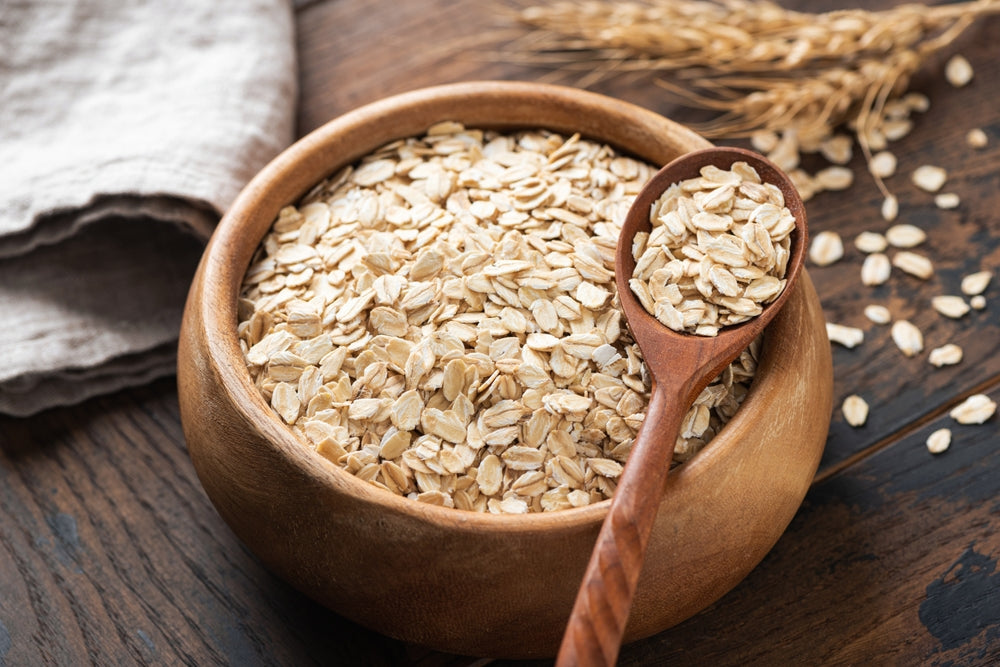What is Oatmeal?
Oats are a naturally gluten-free grain. However, they are often processed in the same line as gluten-containing products, which can lead to cross-contamination. For those on a gluten-free diet, it’s important to look for products labeled “gluten-free.”
Does Oatmeal Help You Lose Weight?
It provides satiety thanks to its high fiber and low calorie content, thus helping with weight control. It keeps you full for a long time by being digested slowly and contributes to weight control management by preventing sudden increases in blood sugar.

How to Consume Oatmeal?
Oatmeal is a versatile food. It can be made into porridge with milk or plant-based milk, or mixed into yogurt or smoothies. It can also be sweetened with fruit, nuts, honey or cinnamon. It can also be consumed uncooked, soaked in milk overnight.
What is the Nutritional Value of Oatmeal?
Combining 100 grams contains about 389 calories. In addition, it contains 66 grams of carbohydrates, 17 grams of protein, 7 grams of fat and 10 grams of fiber. It is also rich in various vitamins and minerals such as iron, magnesium, phosphorus, minerals and B vitamins.
Does Oatmeal Raise Blood Sugar?
Oatmeal is a low glycemic index food. Thanks to the beta-glucan fiber it contains, it prevents sudden increases in blood sugar levels and provides balanced energy. With this feature, it is considered a diabetes-friendly food.

What Recipes Can Be Made With Oatmeal?
- Many healthy recipes can be made with oatmeal:
- Oatmeal
- Smoothie Bowl
- Oatmeal Cookies
- Energy Balls
- Granola
What Are the Most Frequently Asked Questions About Gluten?
Gluten has become a hotly debated topic, especially in recent years. People have many questions about its effects on their diet and health. Here are the most frequently asked questions about gluten:
What is Gluten and Where is it Found?
Gluten is a group of proteins found in wheat, barley and rye. It is often found in baked goods such as bread, pasta, pizza and cake. Gluten gives elasticity and stickiness to dough.
Does Consuming Gluten Have Negative Health Effects?
Gluten is not harmful to most people, but it can have negative effects on the digestive and immune systems of people with celiac disease or gluten intolerance or sensitivity.
What is Celiac Disease and What Are Its Symptoms?
Celiac disease is an autoimmune disease in which gluten causes an abnormal response in the immune system, leading to damage to the small intestine. Symptoms include diarrhea, abdominal pain, weight loss, fatigue and nutritional deficiencies.
What is Gluten Sensitivity?
Unlike celiac disease, people with gluten sensitivity may experience symptoms such as nausea, bloating, and headaches when they consume gluten without any immune system damage. Celiac tests give negative results, but not consuming gluten reduces symptoms in these people.
Is a Gluten-Free Diet Healthy?
A gluten-free diet is essential for people with celiac disease or gluten sensitivity, but if gluten intolerance is not present, the benefits of a gluten-free diet on overall health have not been proven. Furthermore, gluten-free products can sometimes contain more processed sugar and fat.
Does Gluten Make You Gain Weight?
Gluten alone does not cause weight gain. However, processed foods that contain gluten (such as pastries) can be high in calories, which can lead to weight gain if consumed in excess. Weight control is related to overall diet and lifestyle habits.
What Are Gluten-Free Foods?
Foods that are naturally gluten-free include fruits, vegetables, meat, fish, eggs, dairy products, legumes, rice, potatoes, flours , and grains such as corn. Gluten-free diets are based on these types of foods.
Are Gluten-Free Products Healthy?
Gluten-free products may be essential for those with celiac disease and gluten intolerance, but not every gluten-free product is healthy. Gluten-free processed products may contain more sugar, fat or preservatives.
The answers to these questions will help people better understand the health effects of gluten and make informed decisions about their diets.

